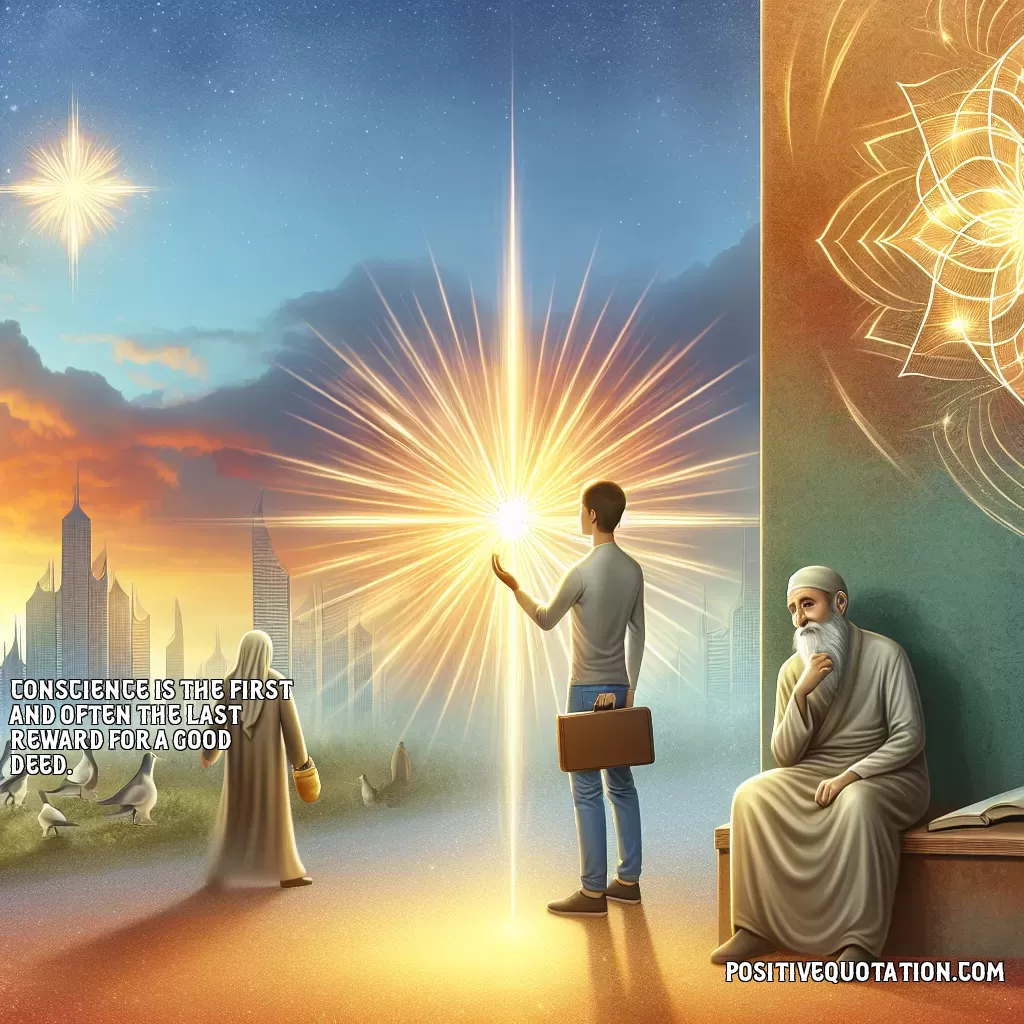
Conscience is the first and often the last reward for a good deed.
Author: Harriet Beecher Stowe
👁️ 10 views

Conscience is the first and often the last reward for a good deed.
👁️ 10 views
The quote "Conscience is the first and often the last reward for a good deed" suggests that the primary reward for performing a good action is the satisfaction and peace of mind that comes from acting in accordance with one's moral beliefs. It emphasizes that our conscience—our internal sense of right and wrong—provides the initial gratification when we do something virtuous. Furthermore, it implies that this sense of moral fulfillment can also be the lasting reward, as the positive feelings associated with doing the right thing linger long after the act itself. In essence, this quote highlights the intrinsic value of good deeds, suggesting that the true reward lies in the personal sense of integrity and righteousness that accompanies them, rather than in external recognition or material gains.
Quote By: Harriet Beecher Stowe
Harriet Beecher Stowe (1811-1896) was a prominent American author and social reformer best known for her influential novel, "Uncle Tom's Cabin," published in 1852, which highlighted the brutal realities of slavery and galvanized the abolitionist movement. Born in Litchfield, Connecticut, she was part of a family that valued education and social justice, and her writings contributed significantly to the national conversation about race and morality in America. Stowe's work not only made her a literary figure but also a key advocate for social change, impacting American culture and politics during a tumultuous period.
Bio added on: 2025-02-16 11:26:01